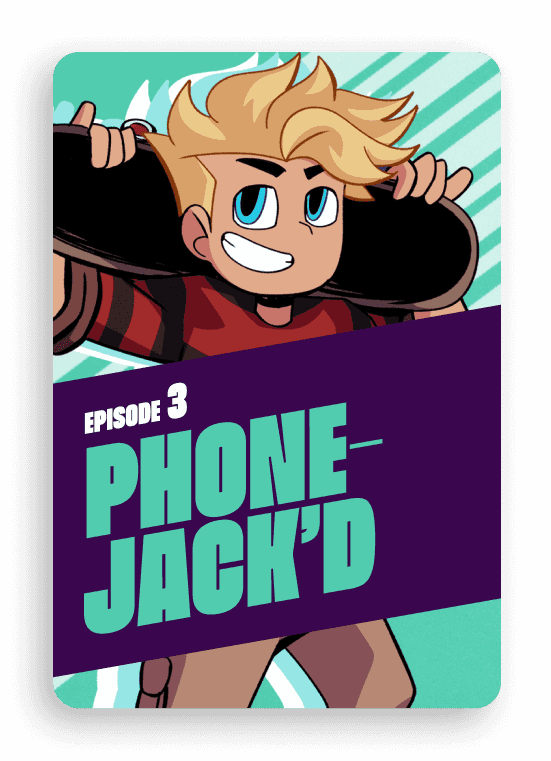In this episode our excitable young gang create an online dance sensation, only to regret posting on a public domain. A fun story to teach your child how to understand privacy settings and the importance of privacy online. Also, how spot the signs of potential risk so they can avoid and prevent it.
Give your kids the skills
- To understand the benefits of the internet and the importance of being connected.
- To understand the importance of privacy and use privacy settings.
- To recognise when they are at risk.
- To appreciate the importance of online consent.
The wonderful and the worrisome
31%
of children have been contacted by someone they don’t know.
Source: Internet Matters, Children’s Wellbeing in a Digital World, 2024
3 in 5
secondary school-aged children have been contacted online in a way that potentially made them feel uncomfortable.
Source: The impact of smartphones and social media on children - House of Commons Library (parliament.uk)
13%
have been sent naked or half-dressed pictures or videos and 10% who have been asked to share these themselves.
Source: Ofcom report; Understanding online communications among children, 2023
Simple ways to support your child
Kids are prime targets for fraud and identity theft, but there are some simple things you can do to help your child take control of their online identity and highlight the importance of privacy. You can:
- Explain that it’s hard to keep things private online and that they can rarely be deleted completely.
- Remind them never to post anything they don’t want thousands to see, and to never say anything online they wouldn’t want said about themselves.
- Explain what ‘personal information’ is so they know to keep it private.
- Ensure you have good anti-virus software, set secure passwords, use parental controls and privacy settings to help reduce their risk of being contacted by strangers, fraud or identity theft.
- Review old apps or online accounts and delete any that are no longer required.
If you’d like more information on online identity and how to help your kids build a positive reputation then, please visit.
